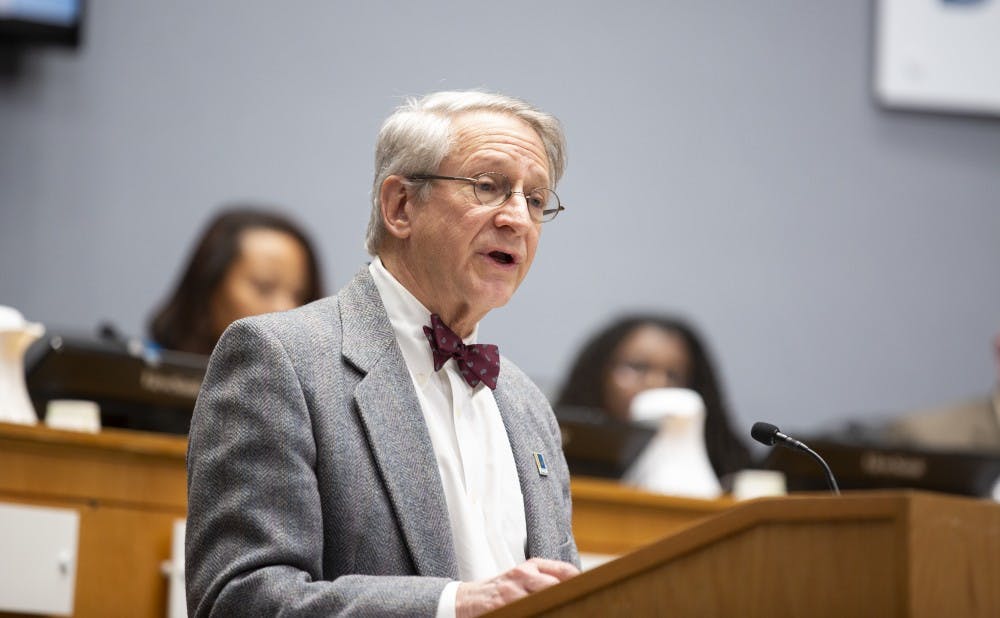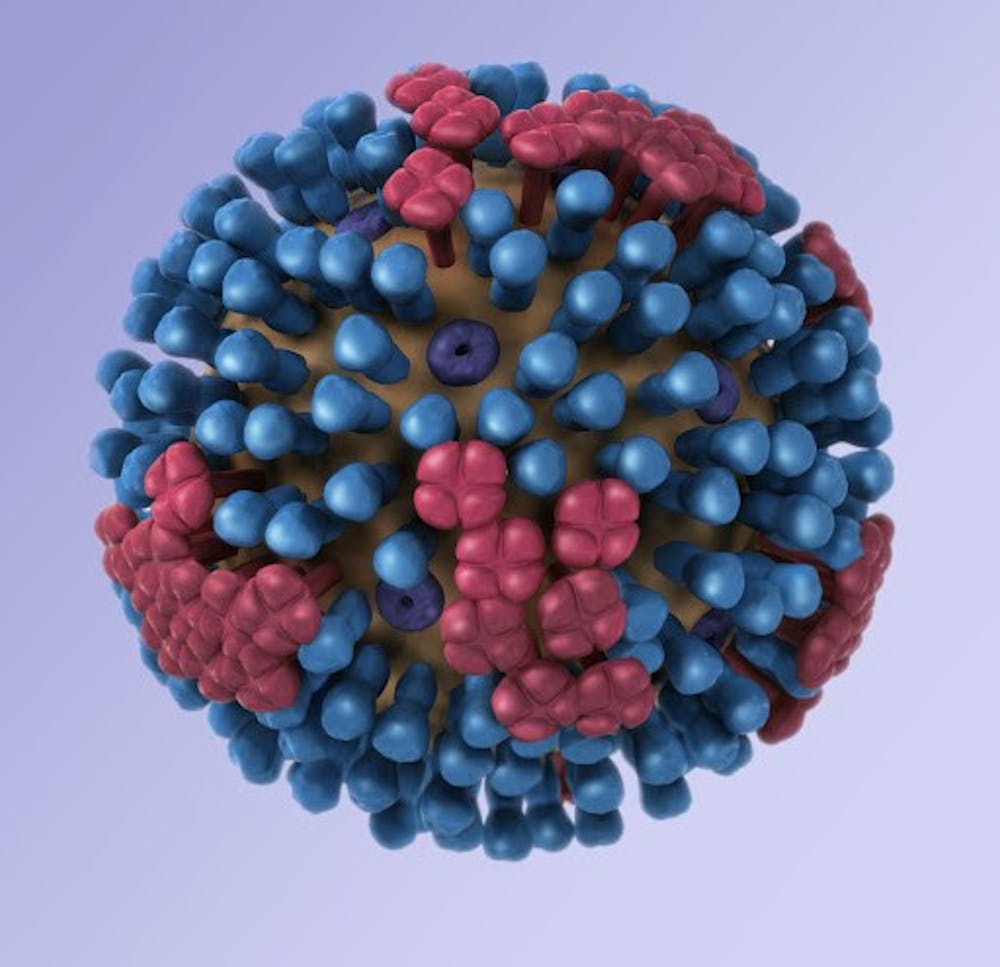Ever since the first positive case of COVID-19 was identified in North Carolina, the state has seen its sports teams hand in their jerseys for the season, its universities send students home and the state government declare a state of emergency.
In the midst of the chaos, The Chronicle has compiled a timeline of some important COVID-19 related news in North Carolina and the Duke community.
March 3: First positive case identified in Wake County
The individual had visited a long-term care facility in Kirkland, Wash., the site of a COVID-19 outbreak. He returned to North Carolina through Raleigh-Durham International Airport Feb. 22.
March 5: Duke mandates quarantine for travel to certain countries, East House to be used as isolation site
In an email to the Duke community, the University issued a mandatory 14-day self-quarantine for any student, faculty or staff member who traveled to a Level 2 or 3 risk country. Domestic travel was not restricted.
According to the email, students on Duke campus would be transferred to East House on East Campus for self-quarantine. Students living off campus would be required to self-isolate in their place of residence.
March 6: Second positive case identified in Chatham County
The individual had traveled to Italy in late February.
March 10: Gov. Roy Cooper declares state of emergency, Duke suspends return to campus
Seven individuals in North Carolina had tested positive at the time. Cooper did not cancel any events or gatherings but suggested various precautionary measures, such as residential homes limiting visitors and high risk individuals avoiding large crowds when possible. The state coronavirus task force also announced they would begin to increase testing for the virus.
Later that day, the Duke community received an email from President Vincent Price stating that in-person classes had been suspended until further notice. Spring break—which was ongoing— would be extended by a week, and online courses would begin March 23.
Duke also suspended events on campus involving more than 50 people. Facilities for students on campus would be limited, and students who were off campus were advised not to return if at all possible.
March 11: Full Frame canceled, new housing policies, multiple NC colleges go online
The 2020 Full Frame Documentary Film Festival, held annually in Durham, was canceled due to Duke’s initial policy to cancel all University-sponsored events through April 20.

Students received an email from Mary Pat McMahon, vice provost/vice president for student affairs, and Gary Bennett, vice provost for undergraduate education, clarifying uncertainties about housing for the rest of the semester.
Students who left campus for spring break were advised not to return, and students who were unable to return home before March 22 due to travel costs or restrictions were able to fill out a housing registration form in order to stay. On March 23, any individual without prior approval to remain on campus would lose DukeCard access to all facilities.
Get The Chronicle straight to your inbox
Sign up for our weekly newsletter. Cancel at any time.
The University of North Carolina system announced that all of its 17 campuses throughout the state would transition to online learning by March 20. North Carolina State and Wake Forest University also canceled classes through March 22.
March 12: Duke suspends all athletic activities, ‘residential activities’ canceled, March Madness canceled
In a statement from President Vincent Price, Duke suspended all athletic activities, including practices and competitions, for all winter and spring sports.
Additionally, after informing students that they could stay until March 22 just one day prior, Duke asked in an email for students to leave campus as soon as possible due to “rapid change of circumstances and advisement of health officials.”
Students who wished to retrieve belongings before March 22 were no longer allowed to do so. DukeCard access to residence halls would now be restricted for all students without pre-approval to stay on campus starting March 16.
The NCAA also announced via Twitter that “remaining winter and spring championships,” including the Division I men’s and women’s basketball tournaments, would be canceled.
March 13: Duke cancels class for remainder of the semester, Fuqua School of Business students test positive, Duke Puppy Kindergarten closes early, no Class of 2024 Robertson Scholars
Vice President for Administration Kyle Cavanaugh informed the Duke community in an email that all undergraduate courses would be held online for the rest of the Spring 2020 semester.
In a separate email, Cavanaugh informed the community that three students from the Fuqua School of Business tested positive for COVID-19 after traveling overseas. The students are in “good condition” but will remain out of the country until they recover.
The total number of positive cases in North Carolina at this time was at least 16.
Duke Puppy Kindergarten also announced on Facebook that the puppies would be graduating early and leaving campus.
In addition, finalists for the Robertson Scholars Leadership Program received an email from program founder Julian Robertson informing them that they will not be selecting Robertson Scholars for the Class of 2024. According to the email, the decision was due to the fact that the Robertson team could not find a way to fairly replicate the Finalist Weekend selection process online.
March 14: First coronavirus case in Durham County, Cooper issues executive order
In an executive order, Gov. Roy Cooper closed all K-12 public schools in the state until at least March 30 and banned gatherings of over 100 people.
The total number of COVID-19 cases in North Carolina had risen to 23 people in 12 counties.
March 15: Mecklenburg County declares local state of emergency
This followed Cooper’s statewide declaration just days prior after four individuals tested positive for COVID-19 in the county.
“The declaration allows the County access to state and federal funds to offset the costs of fighting the pandemic,” a news release stated.
March 17: ACC cancels spring athletics, Cooper closes restaurants and bars, 15 more positive cases in Duke community
Cooper announced via Twitter that all restaurants and bars were to close for dine-in customers at 5 p.m. Delivery and takeout orders were allowed to continue.
Amy Yakola, chief of external affairs for the Atlantic Coast Conference, announced that “all athletic related activities including all competition and practice” would be canceled for the remainder of the 2019-20 academic year.
Cavanaugh informed the community via email that at least 15 more members of the Duke community tested positive for COVID-19. They were part of the same travel group that tested positive just a few days prior. According to the email, the students will remain overseas until they have recovered.
The email did not identify the students or their location, but sources have said the group went to Israel.
As of March 17, 65 individuals had tested positive throughout the state. Approximately 1,100 tests had been administered.
March 18: Students to have default pass/fail option for Spring semester, libraries close, Duke postpones 2020 commencement ceremony
Provost Sally Kornbluth announced in an email that all Spring 2020 undergraduate courses would be graded on the basis of satisfactory/unsatisfactory by default. Students had petitioned to make this an option only days prior, but administrators said discussions had been ongoing prior to the petition.

At 5 p.m., Duke libraries officially closed to the community. Library staff continued to scan documents through Friday, March 20 at 5 p.m.
Later, in another email to the Duke community, Price announced that a future date for the Class of 2020 commencement ceremony is currently under consideration. All other departmental ceremonies were postponed as well.
March 19: Most Duke graduate and professional schools move to satisfactory/unsatisfactory
While the Duke Divinity School and School of Medicine will primarily adopt S/U grading, the School of Nursing and School of Law are still debating the topic.
March 20: Sanford waives internship requirement, DUHS employee tests positive, deadline to pay NC taxes extended to July 15
Public policy majors in the Class of 2021 received an email from Director of Undergraduate Studies Christina Gibson-Davis stating that a public policy internship will not be required to graduate as a public policy major.
A Duke University Health System employee also tested positive for COVID-19. The employee was not in contact with patients when symptoms were present.
The North Carolina Department of Revenue extended the tax filing deadline from April 15 to July 15. The policy applies to all individual, corporate and franchise taxes, but does not apply to trust or withholding taxes.
March 21: Members of UNC community test positive, 184 positive cases in NC
The University of North Carolina at Chapel Hill announced that the university “has confirmed cases of COVID-19.” The exact number of cases and the identities of the individuals were not released.
Out of 5,276 completed tests, 184 individuals in North Carolina had tested positive.
March 23: Duke Health restricts visitors
According to an email to the Duke community, Duke University Hospital, Duke Regional Hospital and Duke Raleigh Hospital will not be accepting visitors “until further notice.”
Limited exceptions were made for patients on hospice, in labor or being discharged. Children will also be admitted.
March 25: 504 cases in NC, first death reported, Schewel tells Durham to stay at home
Out of 10,489 administered tests, 504 of those individuals tested positive for COVID-19. The state announced that a Chatham County resident died March 24, and an individual from Virginia died while traveling through North Carolina.

At a press conference, Durham mayor Steve Schewel issued a stay-at-home order, which closed non-essential businesses and forced people to stay at home unless they’re performing necessary functions like taking care of their health or buying groceries.

Leah Boyd is a Pratt senior and a social chair of The Chronicle's 118th volume. She was previously editor-in-chief for Volume 117.

